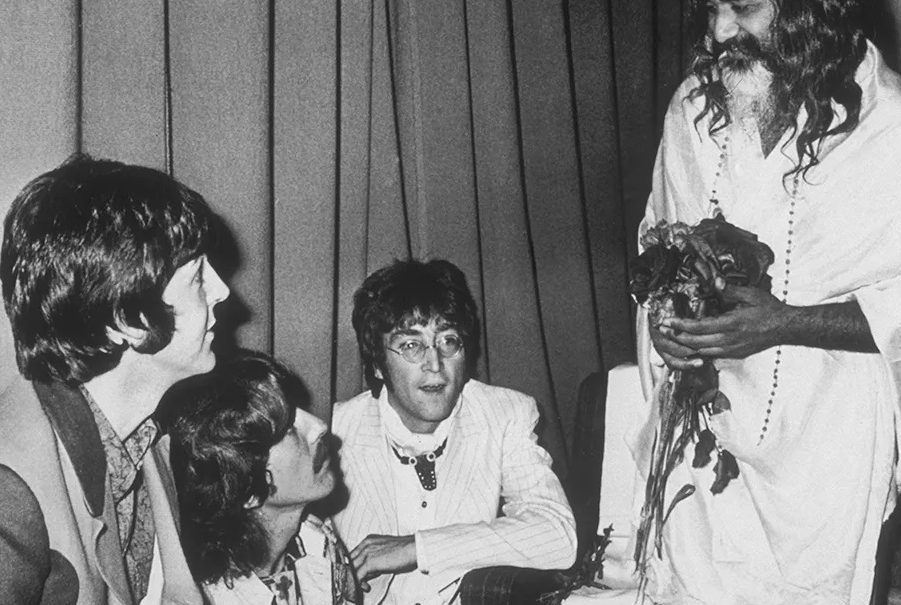Call it a prejudice if you like. Living in Japan in the 1970s, I had a slight aversion to a particular type of westerner. He — for it was mostly a he — usually lived in Kyoto, sometimes wore a kimono and liked to sit in ancient temples chasing after that presumably blissful moment of enlightenment, awakening, satori, or whatever one wishes to call it. These seekers were less interested in Japan as a society of human beings. They wanted to float in higher spheres.
As Christopher Harding explains in The Light of Asia, the Zen adepts, the Buddhist chanters, the rock-garden worshippers, the kimonoed fools (in my no doubt blinkered eyes) were part of a long western tradition. He identifies two ancient western perceptions of the “East,” by which he really means India, China and Japan. One conjures up images of sensual refinement, voluptuousness, sex, silks and spices, the kind of libertine temptations that Cleopatra employed to corrupt and undermine the Roman virility of Antony. The other is the promise of spiritual nirvana, sadly lacking in the disenchanted, materialist West.
Personally, given a choice, I would veer towards Cleopatra rather than the meditating monk, but Harding is more interested in the latter. And, despite my prejudices, I found his history fascinating. The book is a fine complement to Edward Said’s Orientalism, as Harding fills many of the gaps in Said’s famous thesis.
Much of western fascination with Asia came from a sense of what was lacking at home
Said presented the western fascination with Asia, by which he meant mostly the Middle East, as a condescending justification for colonial domination. The East, in western eyes, was feminine, corrupt, otherworldly and irrational, whereas the dynamic, rational, masculine West was its natural master. One can find plenty of illustrations of this particular prejudice in late nineteenth-century French art — Jean-Léon Gérôme’s paintings of slave markets and harems, for example. Such eminent orientalists as Warren Hastings laid great store on learning about Asian cultures, but mainly in order to rule more efficiently. “Every accumulation of knowledge,” Hastings believed, “is useful to the state.”
To focus exclusively on this kind of colonial attitude, however, is to leave too much out. Much of western fascination with Asia came from a sense of what was lacking at home. Harding is more engaged in spiritual quests than political criticism, even though he does mention Voltaire’s rather fantastical admiration for China as a society supposedly run by secular intellectuals, rather like Voltaire and his fellow philosophes, instead of bigoted clerics. Confucius, he claimed, not entirely without reason, was “neither medium nor prophet… but wise magistrate.”
Voltaire’s interest was not really in China per se, of course, but in France. He used an idea of the orient to chastise his corner of the West. Exactly the same gambit was used by more modern political seekers who saw in the thoughts of Chairman Mao a cure for contemporary western ills.
And it must be said, in Voltaire’s defense, that historically educated Asians were often more sophisticated than their western counterparts. Harding quotes the eminently sensible response of the Mughal Emperor Akbar (1542-1605) to miraculous claims made by Christian missionaries: “Show me.” When Portuguese Jesuits arrived in Japan in the sixteenth century they were shocked to see young Japanese women walking the streets unaccompanied by men, and to hear that homosexuality went unpunished. In the Chinese imperial court, there was more interest in western expertise in clockmaking and geography than in stories about martyred saints and an immaculate conception.
In spiritual affairs, however, Europeans started off in a manner that Said would have recognized. Alexander the Great believed that his conquests in the East followed in the footsteps of Dionysus and Heracles, both of whom had simply metamorphosed into the Indian deities Shiva and Krishna. But, in time, many European travelers and thinkers began to seek in the East what they felt was missing in the West.
Harding is especially good on the German orientalists, whom Said left out of his book. Since the Germans had very few colonies in Asia, they had no reason to use their interest in the orient to justify western rule. Instead, they had a bone to pick with French claims to superior reason and enlightenment, employed to justify Napoleonic conquests. Some German idealists extolled the Teutonic soul in language, music and poetry. Others, who felt that neither French rationalism nor Christianity offered any answers, looked to Asia for spiritual inspiration. There were only three professorships of Indology in Britain in the 1800s, whereas there were twenty-two in Germany.
Harding mentions Arthur Schopenhauer, who believed that India, as the “cradle of the human race,” was a home to “mankind’s sacred and original faith.” Friedrich Schlegel studied Sanskrit and speculated that the Germanic people originated in the higher civilization of India. Heidegger’s notion of dasein, not just being, but being there, rooted in community and soil, is also mentioned by Harding as a link to eastern wisdom.
I must confess to feeling uneasy with this strain of thinking. Weimar Berlin was full of seekers after orientalist cures for human ills; and Nazi mumbo jumbo was a sinister and vulgar version of German romanticism. There was even a fashion in certain circles for “Aryan yoga,” Heinrich Himmler, a sucker for this kind of thing, carried a copy of the Bhagavad Gita in his pocket. He, too, sought Germanic origins in the mystical East, notably in Tibet. Harding is much too polite to mention these darker shades of the western fascination with the East.
He is also too kind, for my taste, to some modern seekers in the 1960s and 1970s, when people of my own generation gathered in dimly lit rooms, mumbling nonsense in a sweet haze of Indian incense and Nepali hashish, nonsense derived from such sources as the Tibetan Book of the Dead, and The Way of Zen by Alan Watts. Hippy orientalism had nothing to do with fascism or the Nazis, but it was a revolt against reason, which we associated with “plastic” western materialism, or the world that had failed to “turn on” and “drop out.”
Harding takes Watts very seriously and this is not entirely unjust. Watts, who briefly became an Anglican priest, studied spiritual disciplines, especially Buddhism, in some depth. As did such figures as “Bede” Griffiths, who became a saffron-robed Christian yogi in India. But Griffiths, too, was drawn to some rather dodgy sources. Harding tells us that he found merit in Hitler’s Mein Kampfbecause of its “emphasis on family, community and nature.”
Watts, so far as I know, was not a keen reader of Mein Kampf, but he was another one in a long line of disillusioned western Christians who felt that Europeans and Americans had lost touch with nature and their true selves. Harding has interesting things to say about the way such preoccupations influenced views on psychotherapy. But there is more than a whiff of hippy-dippy self-indulgence in the world of Watts and his followers in California and beyond.
People in dimly lit rooms mumbled nonsense in a sweet haze of Indian incense and Nepali hashish
Harding’s respectful description of George Harrison, for instance, chanting Hare Krishna in his neo-Gothic mansion in Henley-on-Thames, with its wine cellar turned into an echo chamber for incantations, its meditation room, and its “Sanskrit Om flag” flying from the roof, sounds more like a debased form of orientalism than a serious engagement with Asian cultures.
My main problem with so much western seeking for eastern spiritual enlightenment is the lack of interest in the people who actually live in Asia. Just as Parisian Maoists in the 1970s didn’t much care about the Chinese condemned to live under Mao, too many seekers are interested in a fantasy of Asia. They tend to be disappointed to the point of active disdain when people in non-western countries want some of the same things most westerners do, such as modern material comforts and political freedom.
China, today, has no political freedom. India, under Modi, is having less and less. This is not a matter of spiritual impoverishment but of political oppression. One of the ironies of East-West cultural influence is the way many Chinese dissidents have turned to Christianity, not because it promises to take them into higher spheres but because it offers, in their eyes, greater individual liberty.
In sum, then, Harding’s book has rather confirmed my prejudices. I still find the western dabblers in Asia’s ancient wisdom irritating. This is partly a matter of temperament and taste. Harding is more tolerant than I am and has a greater affinity with the seekers. But he has written a very interesting book as a result.
This article was originally published in The Spectator’s UK magazine. Subscribe to the World edition here.


























Leave a Reply